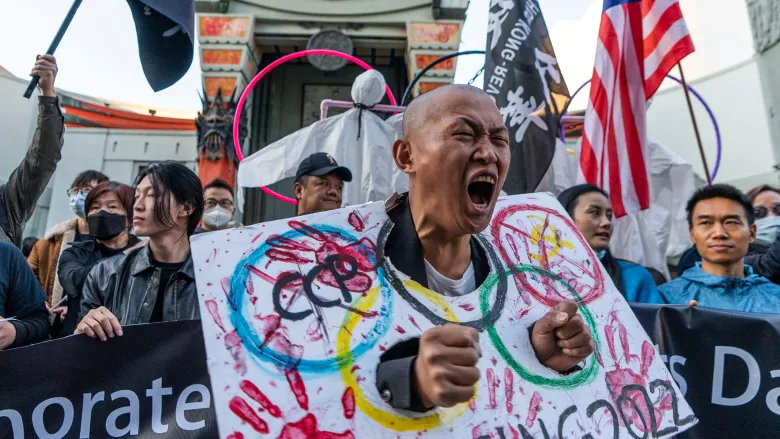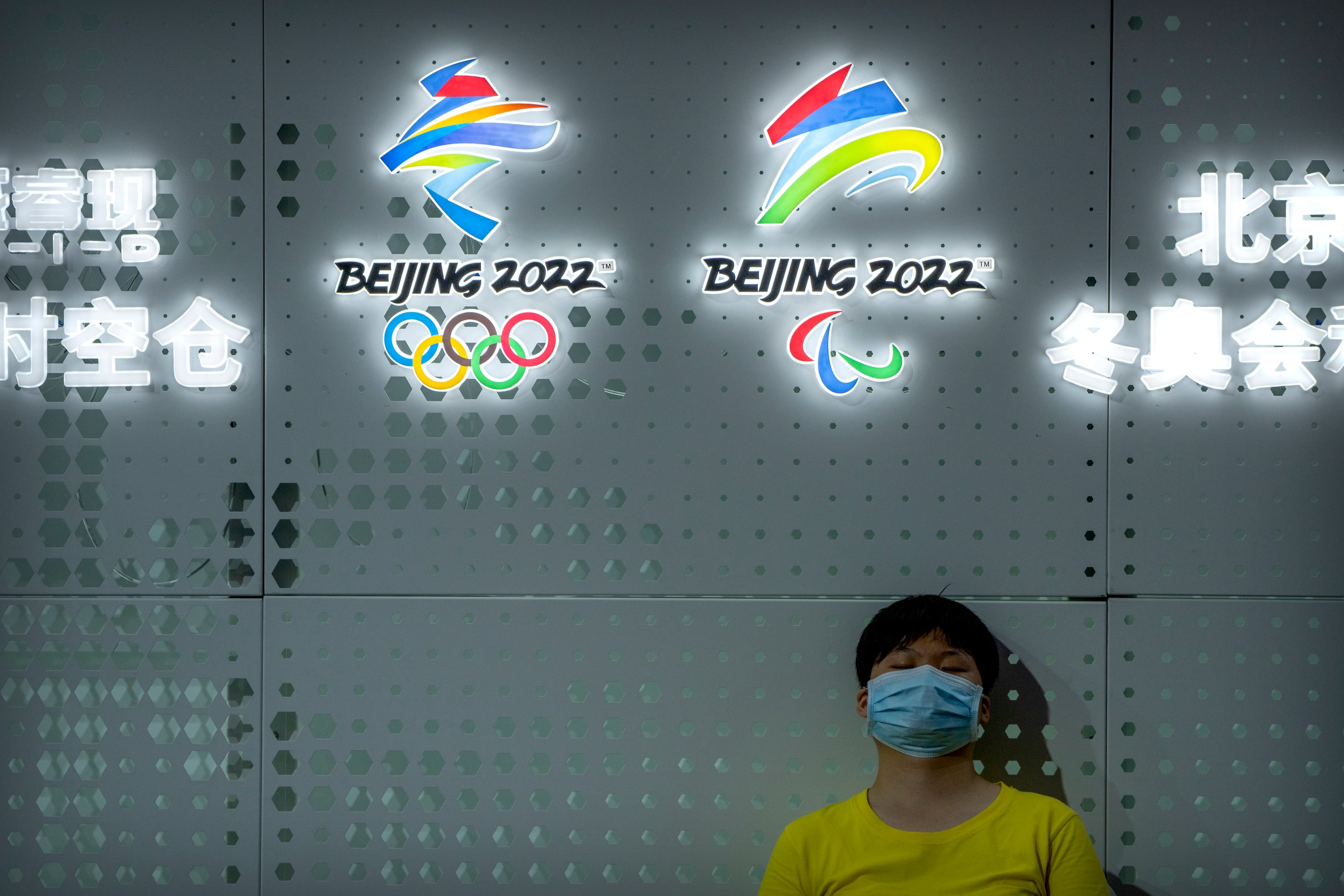
The Canadian government announced Wednesday that it would join the United States, the United Kingdom and Australia in not sending government officials to Olympic events in China in February.
The decision is meant to send a message about the Chinese government’s role in human rights abuses, including the treatment of its Muslim-minority Uyghur people that critics have said amounts to genocide. Athletes from countries participating in the diplomatic boycott are still allowed to compete in the Winter Games, which are set to begin on Feb. 4.
Chemi Lhamo, a Canadian Tibetan rights activist based in Toronto, says the diplomatic boycott is welcome — but she argues that a full boycott would send a stronger message to Beijing.
“How can we allow the Chinese government to think that they’re still capable of holding such prestigious games while they have such egregious abuse of human rights?” Lhamo said in an interview with Cross Country Checkup.
WATCH | Canadian government announces diplomatic boycott of 2022 Olympic Games:

Canada announces diplomatic boycott of Olympics but athletes will still compete
7 days agoDuration4:35
Dick Pound, a member of the International Olympic Committee, joins Power & Politics to talk about Canada’s announcement that it will be joining a diplomatic boycott of the Beijing Winter Olympics. 4:35
Lhamo says those participating in the Games risk “becoming a tool or a medium to be legitimizing the human rights abuses of the Chinese government.”
The activist was arrested last summer during an Olympic flame-lighting ceremony for protesting the decision by the International Olympic Committee (IOC) to award the Olympic Games to Beijing.
China has dismissed the diplomatic boycott, calling it a “farce.” Meanwhile, the IOC has avoided taking a side, instead highlighting the fact that athletes remain eligible to attend.
“You will hear the same comment from us for every political decision from any government,” IOC president Thomas Bach told a virtual news conference on Wednesday. “The integrity of the Games are about the integrity of the sports competitions.”
IOC, corporations should take notice: expert
Limiting the boycott to government officials is the right way forward, according to Kris Burley, a former Canadian Olympic gymnast who supports the diplomatic boycott.
“It’s putting it in the news and in the headlines and bringing the human rights piece to the fore without putting the athletes at the centre of it, which I think is really smart,” he said.
“I don’t think the athletes should be expected to take a position on it unless they want to.”

Human right groups protest the Winter Olympics in front of the Bank of China building in Taipei, Taiwan, on Friday. Lynette Ong of the Munk School of Global Affairs and Public Policy in Toronto says a diplomatic protest by Western governments will be largely ignored by Beijing. (Chiang Ying-ying/The Associated Press)
Burley says the government should take a stronger role in addressing human rights in China, and he adds that Beijing has been accused of rights violations that are not in line with the spirit of the Olympics.
Still, he worries that expecting athletes to speak out against China could compromise their mental focus — and potentially threaten their personal security while competing in Beijing.
While many agree that a diplomatic boycott will be “symbolic,” questions remain about the efficacy such a move would have on its own.
China dismisses Canada, U.K. Olympic boycott as ‘farce’Diplomatic boycotts, Peng Shuai case test IOC leading up to Beijing Games
“Beijing is not going to take that seriously,” said Lynette Ong, an associate professor at the Munk School of Global Affairs and Public Policy at the University of Toronto. “It might retaliate, it might not, but you know, it takes a lot for Beijing to cave in and change its behaviour.”
With foreign news often censored in Chinese media, Ong says she believes that many citizens won’t be aware of diplomatic boycotts by foreign governments — allowing Beijing to push forward with the Games as a celebratory spectacle.
Instead, she hopes the message from Western governments that the international community is speaking out against China’s human rights record will reach IOC officials.
Full boycott could harm athletes
Corporations sponsoring the Olympics must also take notice and respond to those concerns Ong says.
“The world is running out of solutions or options to put pressure on Beijing,” she told Checkup. “The onus lies now with private corporations, especially big companies that have a lot of stakes, businesses and markets in China.”

Activists with the Tibetan Youth Association in Europe protest in front of the International Olympic Committee’s headquarters in Lausanne, Switzerland, on Saturday. Former Olympian Kris Burley says athletes shouldn’t be forced to take a stand on political issues. (Jean-Guy Python/Keystone/The Associated Press)
Critics of China say that only an all-out boycott of the Olympic Games will force the country to take notice, respond to claims it is violating human rights and have ripple effects domestically.
But for Olympians who have trained for years, such a boycott is a tough pill to swallow.
“We just need to think of a better way, and another way, of not having the Olympics be the scapegoat,” said Elfi Schlegel, a former gymnast who was named to Team Canada for the 1980 Moscow Olympics.
Human rights group asks sponsors to defend support for Beijing OlympicsSUNDAY ON CHECKUP
How do you feel about Canada’s diplomatic boycott of the 2022 Olympic Games?
More than 60 countries, including Canada, boycotted those Games in response to the Soviet Union’s invasion of Afghanistan. As a result, Schlegel did not compete — and did not qualify for Olympic competition in the following years.
“It would be nice if athletes didn’t have to feel nervous or think, ‘OK, will it be my time again in four years?'” she said.
Written by Jason Vermes with files from CBC News, The Associated Press, Ashley Fraser and Steve Howard.



